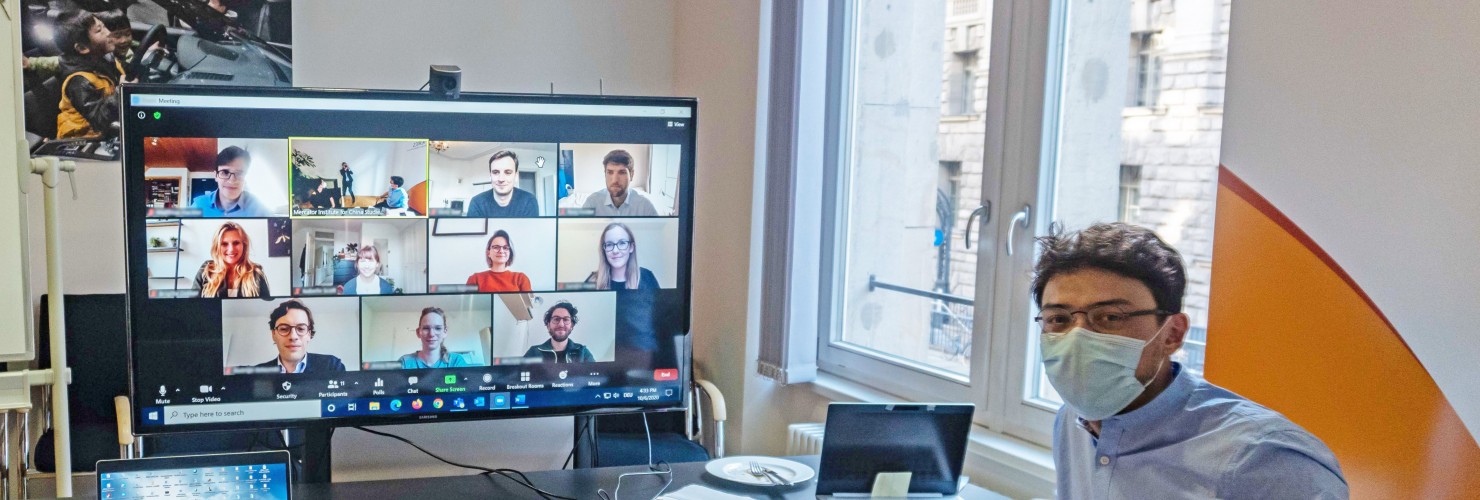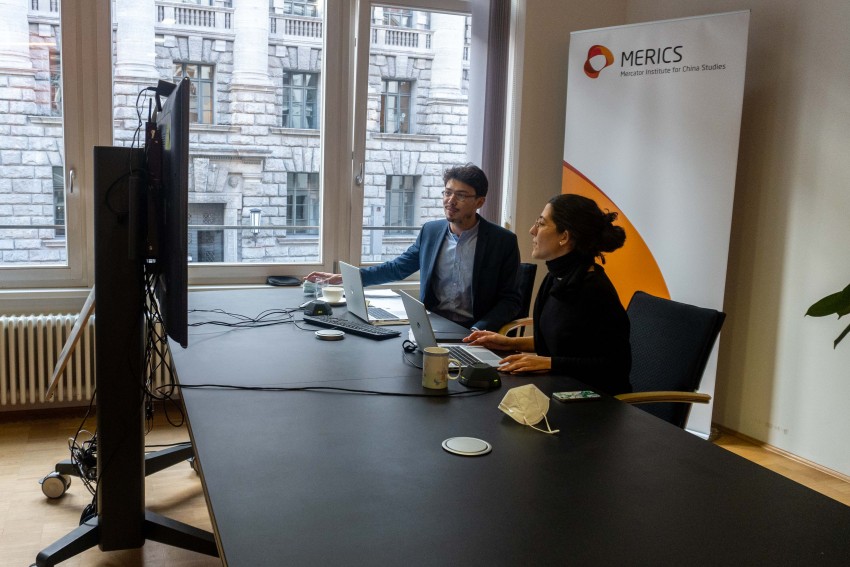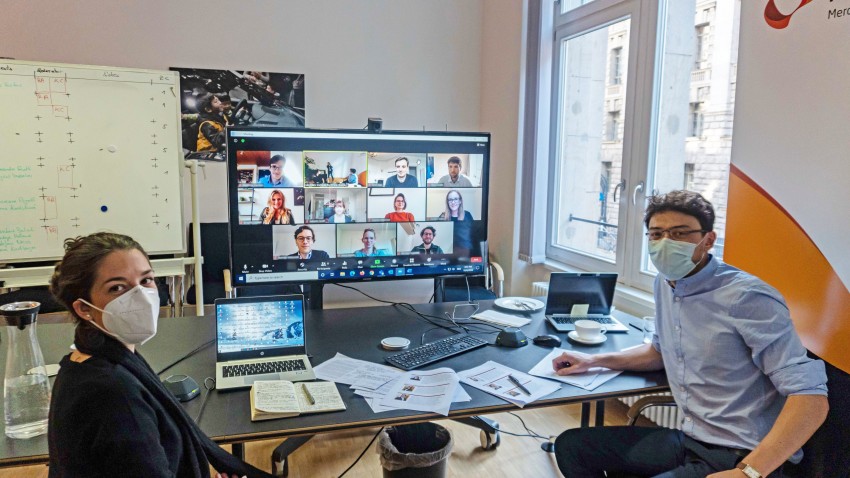

MERICS European China Talent Program 2020
October 6 to 7, 2020 (online workshop)
The sixth edition of the MERICS European China Talent Program (ECTP) took place in what was meant to be a crucial year for EU-China cooperation. Expectations were high for the conclusion of a Comprehensive Agreement on Investment, and a special EU-China summit hosted by German Chancellor Angela Merkel in Leipzig was supposed to reinvigorate the partnership between the two sides. However, the Covid-19 pandemic has brought to the fore systemic differences and deep-seated tensions around both interests and values. The resulting public health and economic crises have accelerated existing trends in EU China policy, from a reassessment of supply chain interdependencies to growing awareness of Beijing’s political influencing efforts.
The EU-China relationship is being drastically reshaped, and European perceptions and policies towards China are shifting in important ways. Yet, challenging trends like the escalating US-China confrontation, the expansion of the Chinese Communist Party’s authoritarian rule in Hong Kong and the persecution of ethnic minorities in Xinjiang add urgency to the need for Europe to translate strategic deliberations into action. The bloc is trying to balance its ambition to become a more confident and geopolitical actor and the need to solve the Covid-19 crisis at home.
With a view to exploring concrete policy responses to the challenges China poses, the European China Talent Program 2020 gathered a select group of early-career professionals from seven European countries for an intensive workshop under the overarching theme of 'The EU and China in a historic year: Recalibrating a critical relationship in times of a global pandemic.' As part of an intensive two-day program, which took place online for the first time in light of the coronavirus outbreak, participants met virtually with senior experts and decision-makers from government, industry and think tank, including MERICS analysts.
Divided in four groups, participants worked in team to formulate policy proposals for improving European policy towards China on some of the most pressing issues on the agenda. They proposed innovative ideas for European actors to tackle China’s challenge to the international human rights regime, centrality in critical supply chains, ambitions in global digital and technology governance, and efforts to gain discourse power on the international stage. Security and resilience of the semiconductor supply chain, academic freedom, China’s increasingly central role in setting technical standards and norms for digital and emerging technologies, and its public diplomacy, propaganda and disinformation activities in Europe all featured in group discussions and subsequent proposals. Beijing’s crackdown on democracy and civil liberties in Hong Kong, ideological and security aspects of the US-China rivalry and Sino-Russian military cooperation, and political risks for European companies doing business with China were also discussed.
The sixth cohort of the MERICS European China Talent Program encompassed young experts from national government, public policy and consulting, human rights advocacy, legal services, the technology industry, think tank, and international organizations. They are now part of a diverse network of ECTP alumni that counts about 100 Europeans working on China and related issues from around the world.
Program highlights included:
Searching for leadership in EU China policy: What role for Germany during its EU Council Presidency?
- Off-the-record discussions with Alexander Roth, Deputy Head of China Division at the German Federal Foreign Office, and Abigaël Vasselier, Deputy Head of Division at European External Action Service (EEAS).
Bracing for CCP political influencing and disinformation in Europe: lessons from the Covid-19 crisis
- Off-the-record discussions with Lucrezia Poggetti (MERICS) and Ivana Karásková (China Observers in Central and Eastern Europe; Association for International Affairs; MERICS European China Policy Fellow).
Joint Bertelsmann Stiftung-MERICS China Policy Jam Session on the question 'Are we in a new Cold War?'
- Interactive debate with concluding policy comments by Nadège Rolland (National Bureau of Asian Research), Sarah Kirchberger (Institute for Security Policy at Kiel University) and Stefani Weiss (Bertelsmann Stiftung), and gathering researchers from Bertelsmann Stiftung and MERICS. The discussion was moderated by Bernhard Bartsch (Bertelsmann Stiftung).
The US-China tech decoupling: implications for Europe and technology governance
- Virtual World Café-style workshop with Janka Oertel (European Council on Foreign Relations), Jan-Peter Kleinhans (Stiftung Neue Verantwortung) and Rogier Creemers (Leiden University).
The ice is getting thinner: Managing political risk in doing business with China
- Off-the-record discussions with Maurice Fermont, Senior Trade Adviser in the International Relations Department at BusinessEurope, and representatives of the German industry.
The China challenge to democracy and human rights in Hong Kong and beyond
- Off-the-record discussions with Malin Oud (Raoul Wallenberg Institute) and Katja Drinhausen (MERICS)
The call for applications for the next edition of the ECTP will be advertised on this page in late spring 2021.



